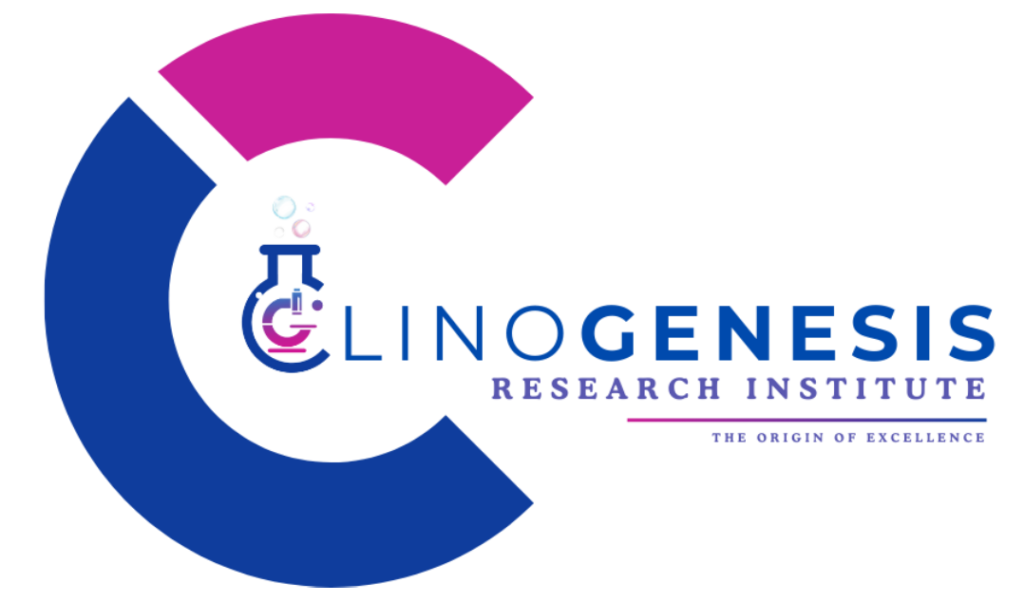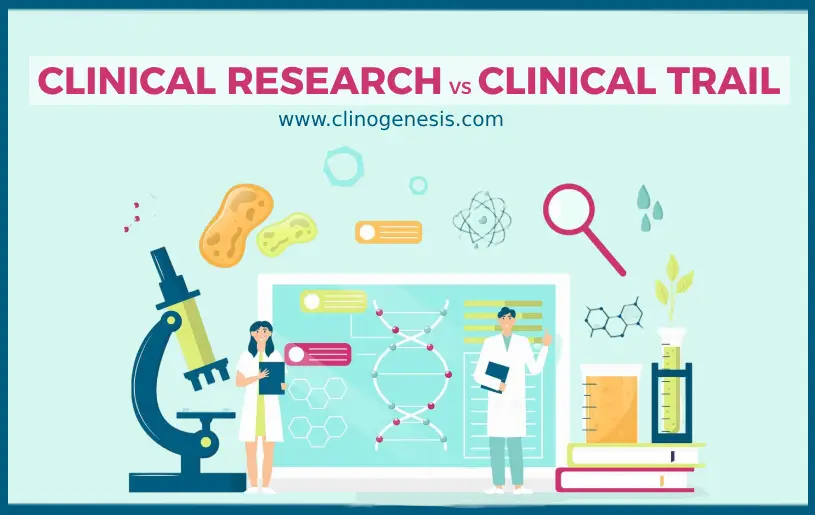When you have been considering a career in clinical research, you have probably heard the terms “clinical research” and “clinical trials”. Although these terms are frequently used interchangeably, they refer to different aspects of medical research. If you wish to pursue a career in this rapidly growing field, it is important to understand the key differences between clinical research and clinical trials.
Here we will discuss the main differences between clinical research and clinical trials, how they are intertwined, and what clinical trial management (CTM) entails.
What is Clinical Research?
Clinical research is the broader field that involves the study of health and disease in humans. It includes various types of research aimed at improving health outcomes, developing new treatments, or understanding disease patterns.
In clinical research, more than only trials are conducted; it includes everything from observational studies, where researchers observe how diseases develop in groups of people, to laboratory studies, where scientists investigate how cells respond to therapeutic interventions
Think of clinical research as an umbrella term. Under this umbrella, there are different areas like:
- Epidemiological studies (examining disease in populations)
- Behavioral health studies (exploring how lifestyle impacts health)
- Pharmacovigilance (monitoring drug safety after they’re on the market)
- And of course, clinical trials, which is a subset of clinical research.
What are Clinical Trials?
Clinical trials, on the other hand, are more specific. A clinical trial is a carefully designed experiment or study conducted on human participants to determine the safety and effectiveness of a medical intervention—be it a new drug, therapy, vaccine, or medical device.
Trials are conducted in phases, each designed to address a specific research question while ensuring the participant’s safety.
Clinical trials follow a strict process that includes:
- Phase I: Testing a new treatment in a small group to evaluate its safety.
- Phase II: Expanding the study to more participants to further evaluate the effectiveness and side effects.
- Phase III: Involving even larger groups to confirm effectiveness, monitor side effects, and compare with standard treatments.
- Phase IV: Taking place after a treatment has been approved to continue monitoring its effects.
Key Differences
To help you understand the difference between clinical research and clinical trials, let’s look at some major distinctions in a simple table:
| Features | Clinical Research | Clinical Trials |
| Definition | Broad study of medical treatments | Specific experiments to test new drugs |
| Purpose | Generate new knowledge | Determine safety and efficacy |
| Study Design | Can be observational or interventional | Highly structured, with strict protocols |
| Participants | May involve a wide range of participants | Involves specific eligibility criteria |
| Outcome Measurement | May use various metrics | Focuses on specific endpoints |
| Phases | No specific phases | Typically involves multiple phases (I-IV) |
Now, Why Are These Differences Important?
Anyone considering a career in clinical research must understand the difference between clinical trials and clinical research. It is important to know the distinctions between Clinical Research Associates (CRAs) and Clinical Trial Managers (CTMs) in order to determine your learning path and career direction.
For example, a Clinical Research Associate (CRA) monitors clinical trials and ensures that they comply with regulatory requirements. As opposed to a Clinical Trial Manager (CTM), who oversees the entire process of conducting a clinical trial, from planning to execution. Each role requires a unique set of skills and a thorough understanding of the clinical research process.
Why Pursue a Career in Clinical Research?
- You have a wide range of career opportunities in clinical research, from research assistants (RAs) to biostatisticians and data managers. You can select a position that corresponds with your interests and skills.
- Your participation in clinical research can contribute to advancements in medicine that can improve patient outcomes as well as lead to new treatments and therapies.
- Your role in clinical research offers tremendous growth potential, as the expanding healthcare sector increases the demand for trained professionals, ensuring job security and career advancement opportunities.
- By integrating healthcare with technology through bioinformatics, you can leverage your skills in data analysis and coding, giving you a competitive edge in this evolving field.
How Can Clinogenesis Research Institute Help?
One of the prominent organizations contributing to the field of clinical research in India is the Clinogenesis Research Institute. They offer specialized training programs that equip students with the necessary knowledge and skills to excel in clinical research and trials. Their courses cover various aspects, including regulatory requirements, study design, data management, and ethical considerations.
In Conclusion
while clinical research and clinical trials are closely related, they serve different purposes in the medical field. Clinical research is a broader term that encompasses various types of studies, while clinical trials are specific experiments focused on testing new treatments. By understanding these differences, you can make informed decisions about your career path.
If you’re interested in diving deeper into the world of clinical research, consider exploring courses offered by institutions like the Clinogenesis Research Institute. Whether you choose clinical research, medical coding, or bioinformatics, each path offers exciting opportunities to make a meaningful impact in healthcare.
If you have any questions or want to learn more about clinical research, feel free to reach out! Your journey in this field could be just a course away!




